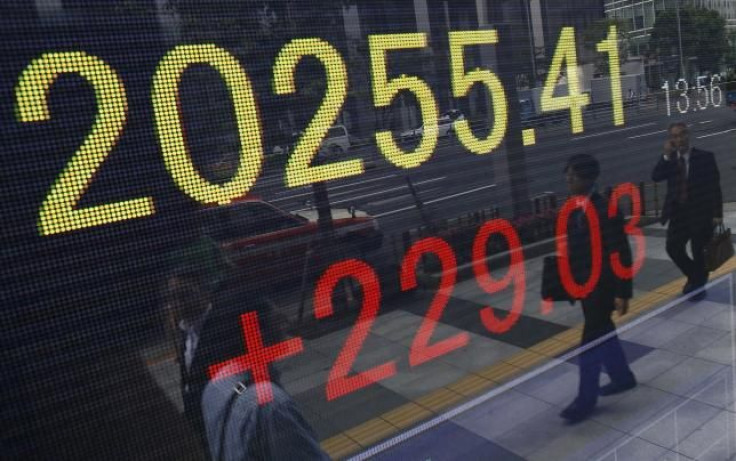Japan Shares Set Fresh 15-Year High, Dollar Holds Gains After Fed Minutes

Japanese shares hit a new 15-year high on Thursday on hopes that its long-moribund economy was finally coming to life, but weak China factory activity capped stock market gains in much of the rest of Asia.
The dollar held on to broad gains after minutes from the Federal Reserve's April meeting minutes contained no major surprises.
Tokyo's Nikkei gained 0.5 percent a day after the release of stronger-than-expected GDP data.
But, reflecting the overall more somber mood with overnight losses on Wall Street and persistent weakness in China, MSCI's broadest index of Asia-Pacific shares outside Japan were effectively flat. South Korean and Hong Kong shares slipped, while Australian and Indonesian stocks gained.
The Shanghai Composite Index rose 0.8 percent after the flash HSBC manufacturing PMI showed Chinese factory activity contracting for the third month in May.
Weak Chinese readings feed concerns about cooling demand from the global powerhouse, but at the same time they often shore up Chinese stocks by fueling expectations that policymakers will roll out extra monetary stimulus.
The closely-watched Fed meeting minutes showed many officials believed it would be premature to hike interest rates in June, which did not take the markets by surprise.
The U.S. economy has shown signs of strength - the latest being this week's upbeat housing data - but overall recovery has not been as robust as expected. The economy grew by a modest 0.2 percent in the first quarter.
"A 'few' participants anticipated that the economy could make enough progress toward the dual mandate (of full employment and stable prices) to warrant a June rate hike, although 'many' thought it unlikely that the data available by the June FOMC meeting would justify a hike. We maintain our view of a first hike in September," strategists at Barclays said.
Treasuries yields spiked earlier in the month along with a rout in euro zone bonds, but the two bond markets have recently shown signs of decoupling.
The surge in euro zone bonds stalled this week, partly in response to European Central Bank policymakers saying the central bank would ramp up its bond buying.
The dollar fetched 121.09 yen, not too far from a two-month peak of 121.49 struck overnight. The euro hovered near a two-week low of $1.1062, having slid from a three-month peak of $1.1468 touched late last week.
The Australian dollar rose 0.4 percent to $0.7904, putting some distance between a two-week trough of $0.7861. A sharp drop in prices of iron ore, Australia's main export commodity, has weighed on the Aussie.
In commodities U.S. crude rose 15 cents to $59.13 a barrel. Oil prices had rebounded on Wednesday after a five-day decline, but a large supply overhang and concerns over a strong dollar have weighed on the market.
© Copyright IBTimes 2024. All rights reserved.











